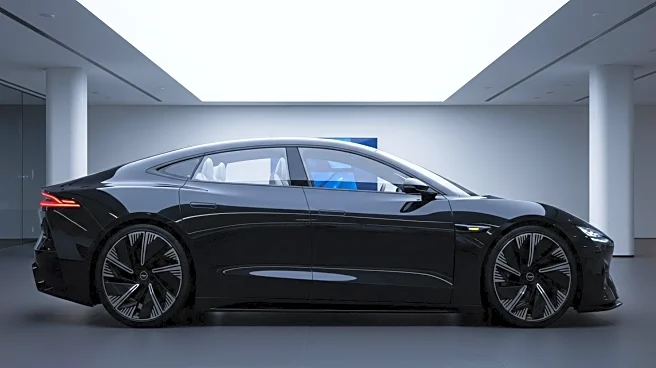What's Happening?
Nissan has introduced the 2026 model of its Leaf electric vehicle, showcasing significant improvements in efficiency and interior space. The new Leaf is built on a dedicated electric vehicle platform, shared with Renault and Mitsubishi, which enhances its space efficiency. Despite being 3 inches shorter externally, the vehicle offers nearly 9 inches more rear legroom, making it more comfortable for passengers. The design features a lower drag coefficient and a body style that blends elements of a crossover and a fastback sedan. These changes mark a departure from previous models that were adapted from internal combustion engine platforms and lacked liquid cooling for battery packs.
Why It's Important?
The introduction of the 2026 Nissan Leaf represents a strategic move in the electric vehicle market, emphasizing the importance of dedicated EV platforms for improved performance and passenger comfort. This development could influence other automakers to invest in similar platforms, potentially accelerating the transition to electric vehicles. The enhanced efficiency and space may attract more consumers, contributing to increased EV adoption. As the market for electric vehicles grows, this could lead to significant environmental benefits, reducing reliance on fossil fuels and decreasing emissions.
What's Next?
Nissan's continued innovation in electric vehicle design may prompt competitive responses from other automakers, potentially leading to advancements in EV technology and infrastructure. The market could see increased investment in charging networks and battery technology to support the growing number of electric vehicles. Additionally, consumer demand for EVs may rise, influencing public policy and encouraging government incentives for electric vehicle purchases.
Beyond the Headlines
The shift to dedicated EV platforms highlights a broader trend in the automotive industry towards sustainability and technological innovation. This could lead to long-term changes in manufacturing processes and supply chains, as companies adapt to new technologies and materials. The cultural acceptance of electric vehicles may also evolve, as consumers become more familiar with their benefits and capabilities.










